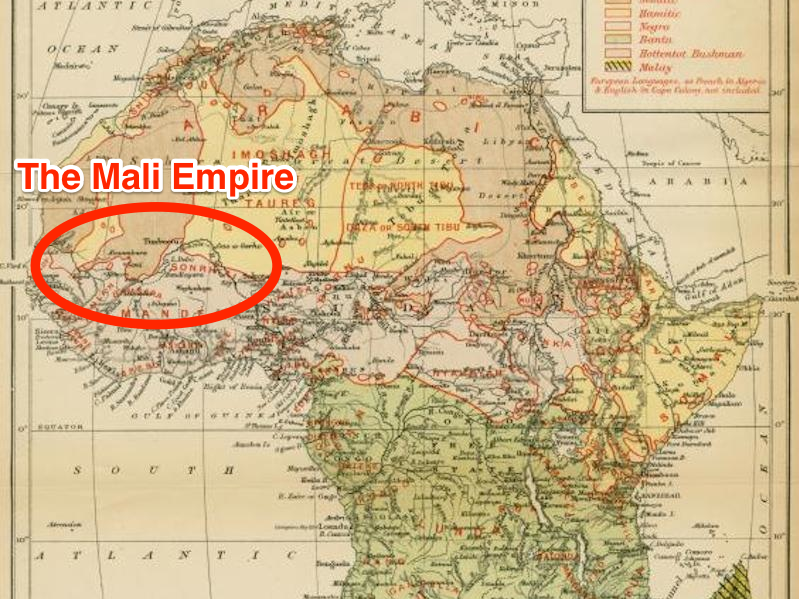Here's what it was like to be Mansa Musa, thought to be the richest person in history

Amazon CEO Jeff Bezos's net worth just crossed $100 billion, the first time in modern history that a person has been known to hold such a massive amount of wealth.
But he's still far from African King Musa Keita I, who is thought to be the richest person of all time — "richer than anyone could describe," reports Time.
Literally. His fortune was incomprehensible, Time's Jacob Davidson writes: "There's really no way to put an accurate number on his wealth."
He ruled the Mali Empire in the 14th century and his land was laden with lucrative natural resources, most notably gold.
"His vast wealth was only one piece of his rich legacy," reports Jessica Smith in a TED-Ed original lesson. Read on to learn more about the legendary king and see what it was really like to be the richest person in history:
Musa Keita I came into power in 1312. When he was crowned, he was given the name Mansa, meaning king. At the time, much of Europe was famished and in the middle of civil wars, but many African kingdoms were thriving.
While in power, Mansa Musa expanded the borders of his empire tremendously. He annexed the city of Timbuktu and reestablished power over Gao. All in all, his empire stretched about 2,000 miles.

Mansa Musa was in charge of a lot of land. To put it into perspective, he ruled all (or parts) of modern day Mauritania, Senegal, Gambia, Guinea, Burkina Faso, Mali, Niger, Nigeria, and Chad.
The rest of the world caught wind of his great fortune in 1324, when he made the nearly 4,000 mile pilgrimage to Mecca. He didn't do it on the cheap.
"Not one to travel on a budget, he brought a caravan stretching as far as the eye could see," reports Smith. "Chroniclers describe an entourage of tens of thousands of soldiers, civilians and slaves, 500 heralds bearing gold staffs and dressed in fine silks, and many camels and horses bearing an abundance of gold bars."
On his stop in Cairo, he spent so much gold and donated so much money to the poor that he caused mass inflation! It would take years for the city to fully recover from the currency crisis.
The extravagant journey put Mansa Musa on the map — quite literally.

"Material riches weren't the king's only concern," says Smith. "As a devout Muslim, he took a particular interest in Timbuktu." He urbanized the city of Timbuktu by building schools, mosques, and a major university.
He also built the legendary Djinguereber Mosque in Timbuktu, pictured below, which still stands.
After reigning for 25 years, Mansa Musa died in 1337. He was succeeded by his son, Maghan I. "The king's rich legacy persisted for generations and to this day, there are mausoleums, libraries, and mosques that stand as a testament to this golden age of Mali's history," says Smith.

Read more:
• This chart is easy to interpret: It says we're screwed
• How Uber became the world's most valuable startup
• These 4 things could trigger the next crisis in Europe
Read the original article on Business Insider UK. © 2016. Follow Business Insider UK on Twitter.
Join our commenting forum
Join thought-provoking conversations, follow other Independent readers and see their replies
Comments
Bookmark popover
Removed from bookmarks